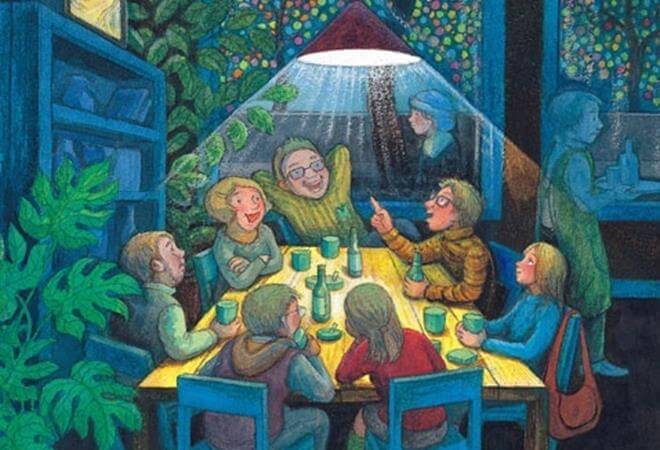What's the Best Social Network?


Written and verified by the psychologist Valeria Sabater
I have thousands of friends on my social networks. Some of them with names I can’t even pronounce and have never seen before. However, they provide me with a “like” every time I upload a photo of my life, a life they know nothing about.
Today’s social relationships are different to those of our parents. Nevertheless, that doesn’t mean they’re worse. Let’s just say they have a different essence. They have a different way to form bonds that at time are so fleeting, changing and varying, like water held in our hands.
Social networks flood the days of many people, reaching the point that if we don’t tweet something or publish a photo, we don’t exist. Now, it’s possible that many of us “don’t exist” as intensely in the virtual space of social networks, but on the other hand, we’re still important to those who are truly significant to us. People who we can surely count on one hand. People who give an authentic meaning to our lives, and who don’t need to read our statuses on social networks to know if we’re okay or not.
Social networks and the power of “likes”

We’re all aware of the great benefits social networks provide us: they are a true weapon of power. Every piece of news jumps to them in seconds to obtain acceptance or rejection. The reaction is immediate and the process of liking and sharing is infallible.
The world is made smaller by social networks and everything seems to be within arm’s reach. They call it the fifth power. It brings consciousness and establishes interconnections between people, where the attitude or actions of a single individual can influence thousands.
It never ceases to surprise and enrich us, specially in the following ways:
- We bond over social networks when we share similar interests.
- We interact, learn, and meet people who in turn share our similar interests.
- Many times we can even start certain changes of personal growth thanks to these motivators we often receive through our social networks.
It’s not about avoiding social networks at all costs. It’s unavoidable. Society nowadays is interconnected. It’s like a big brain full of connections and synapses where the new technology is an extension of ourselves.
- It’s about establishing priorities.
- It’s about not being dependent, not reaching the extreme of thinking that if we don’t publish something we stop existing in real life. In fact, you can travel to and come back from anywhere without having to publish it.
- The power of “likes” should never be a need to receive positive reinforcement in our day to day. No one should have to upload a photo to know if they’re attractive.
- Self-acceptance should never depend on the amount of “likes” you receive in a day.

A table with my best people, that’s the best social network
Most of us know who the pillars of our life are. Those people who go beyond social networks (though they also form a part of them). We enjoy their closeness, the sound of their laughter and the warmth of their hugs.
The most important people are the ones who form a part of the daily details. They offer a whispered “I love you” when you least expect it, without needing anyone else to know…
- Many teenagers are characterized by low self-esteem. They feel disposable by society and are dependent on that positive reinforcement posed by social networks, in the forms of the classic like or favorite.
- Due to a lack of real quality in their own social relationships, they generate a basic need of accumulating followers and friends in their social networks.
- These friendships are usually empty and very ephemeral. Nevertheless, the sense of loss doesn’t last long, because for every “unfriending“, they can add many more.
- Adolescence should be the time where relationships mark a before and an after. They should be emotional pillars that help them grow and mature.
Nowadays there are many teens that produce a kind of social “anomy,“ where there are very few things that consolidate, and where they can’t build a real commitment to their fellow peers.

It’s important that as parents or educators we reorient them. Social networks are without a doubt a weapon of power, but there are many other priorities that can be much more enriching.
This text is provided for informational purposes only and does not replace consultation with a professional. If in doubt, consult your specialist.








